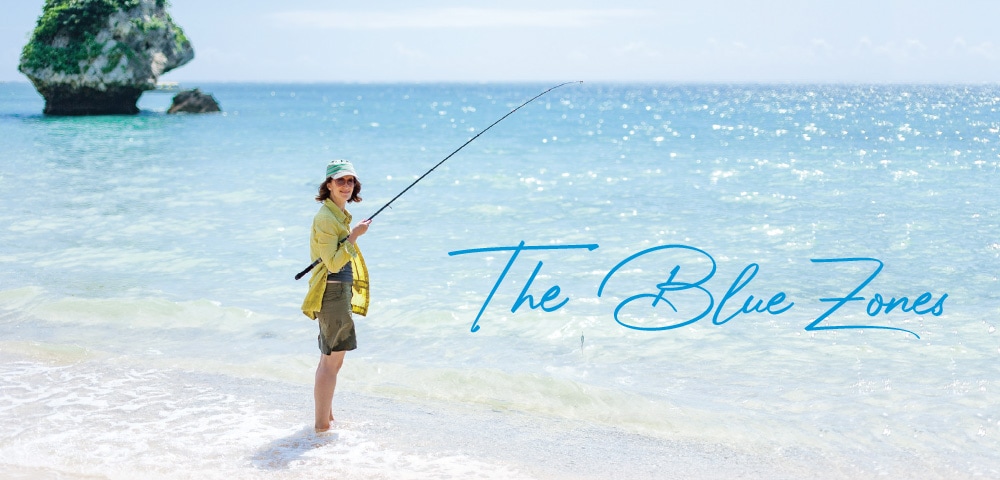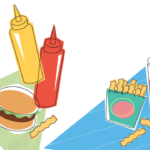
There are five Blue Zones locations worldwide where people live long, healthy, and happy lives.
On a recent trip to Italy with my family of five in tow, it amazed my husband and me how active and healthy older Italians seemed. Many in their 80s live alone, shop in open-air markets, and easily carry their groceries home, walking up large, stone stairs. I started thinking about the “Blue Zones.” Very few places in the world are called Blue Zones, and for good reason. A diet in the Blue Zones comprises vegetables, fruits, grains, and legumes, and is void of large portions of meat, sugar, and processed foods, which is an extreme departure from the typical North American diet. People in these zones consume coffee, black or green tea, and wine daily. It was important to me as a nutritionist to explore how minor changes to diet and activity could have substantial health benefits.
If you are unfamiliar with the concept of the Blue Zones, there are five locations worldwide where people live long, healthy, and happy lives. Discovered in 2004, the Blue Zones include Sardinia, Italy; Ikaria, Greece; Nicoya Peninsula, Costa Rica; Seventh Day Adventists in Loma Linda, California; and Okinawa, Japan. A team of medical researchers, anthropologists, and epidemiologists went to these regions and performed a large-scale study with National Geographic on longevity. These scientists searched for evidence-based commonalities among the people’s diets and lifestyles. Researchers found many exciting similarities in all five zones, and the good news is that you don’t need to move there to reap the benefits of a long, disease-free life. Small, easy-to-incorporate daily changes can extend your life by 10–12 years.
As a nutritionist, food is my passion. I love to eat, cook, and share meals with family and friends, so I was particularly interested in learning more about the Blue Zones diet. The diet comprises 85% fresh vegetables, fruits, grains, and legumes, and meat is eaten a few times per month, each serving the size of a deck of cards. People in the Blue Zones also stop eating when they’re 80% full and don’t like the feeling of being stuffed, which is not a practice of North Americans, given our enormous serving sizes. The timing of meals also plays a crucial role. People in these zones enjoy a small meal in the late afternoon or early evening, and that’s it. They eat nothing else for the rest of the day. This form of intermittent fasting lengthens lifespan by reducing inflammation and undue stress on the digestive system. Another noteworthy point is that people enjoy 1–2 glasses of wine daily with good company to promote relaxation and help reduce stress.
Another cornerstone in these zones is that people are connected to the community and have a sense of belonging. Family is always put first. Aging parents and grandparents stay close, often in the same home, which helps lower disease and mortality not just for the elderly, but for the children, too. Blue Zones families invest time and love in their children, resulting in the entire family caring for elderly relatives. Staying connected with friends and setting time aside for shared activities is integral to healthy aging.
Experiencing purpose in your life contributes to life satisfaction and longevity.
Staying positive reduces stress. Stress is a leading cause of chronic inflammation, contributing to all major age-related diseases. People in the Blue Zones know how to relax and reduce stress. Feeling overwhelmed is inevitable, but taking time each day to regroup is another factor in longevity. Okinawans in Japan take a few minutes daily to remember their ancestors, Ikarians take an afternoon nap, and the Italians connect with family and friends over happy hour. No matter what, choose to relax, unplug, and reflect on all your blessings daily. Experiencing purpose in your life contributes to life satisfaction and longevity. A positive outlook and meaningful existence can add as many as 7–10 years of extra life.
While on our trip, we drew much inspiration from the elderly Italians. We enjoyed fresh and delicious vegetable dishes, connected with friends, walked everywhere, and sampled dinners in the beautiful setting of Italian sunshine accompanied by a glass of vino. We learned firsthand why Italians live longer, happier lives than many of their counterparts worldwide. Now home, we are re-inspired to continue incorporating everything we experienced on vacation. We’re eating meals together, mindful of the 80% rule, and enjoying the summer garden bounty while making beautiful memories with family and friends.














